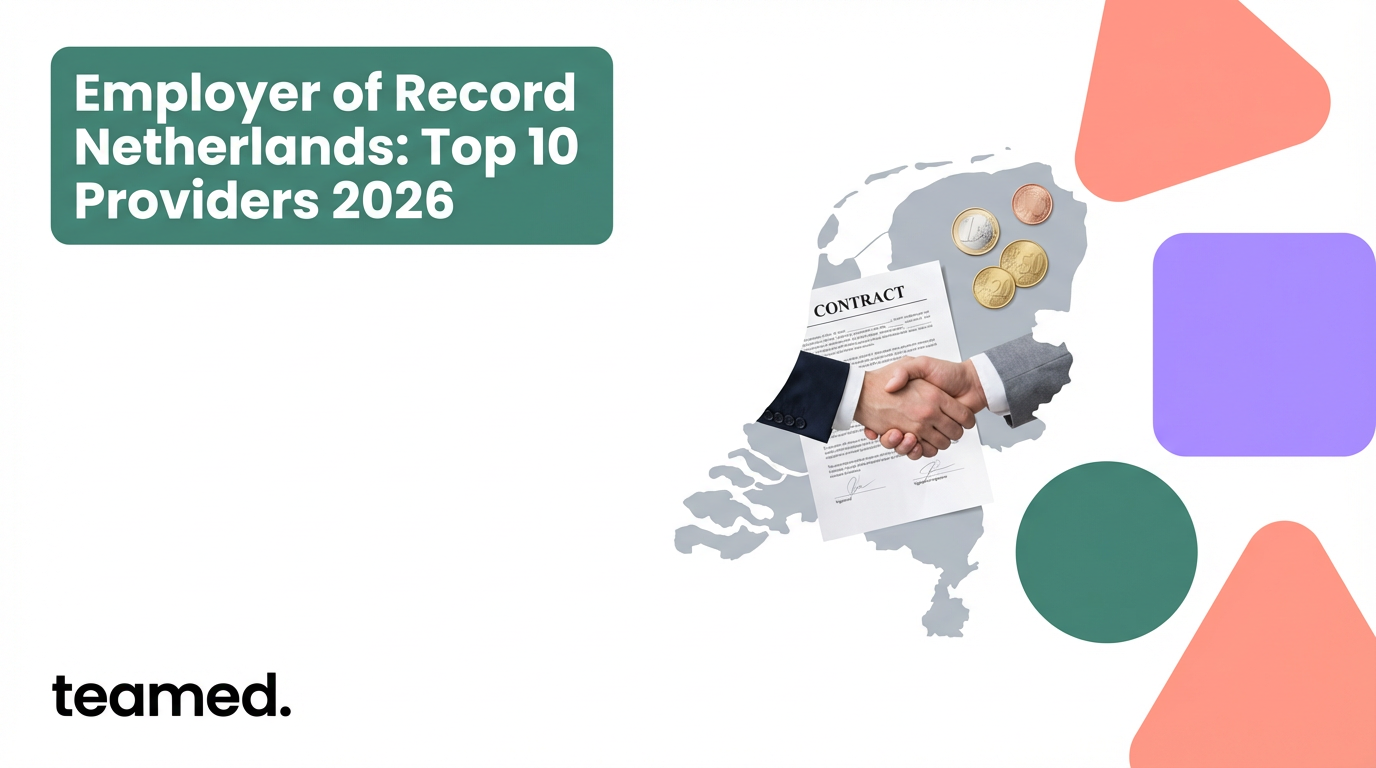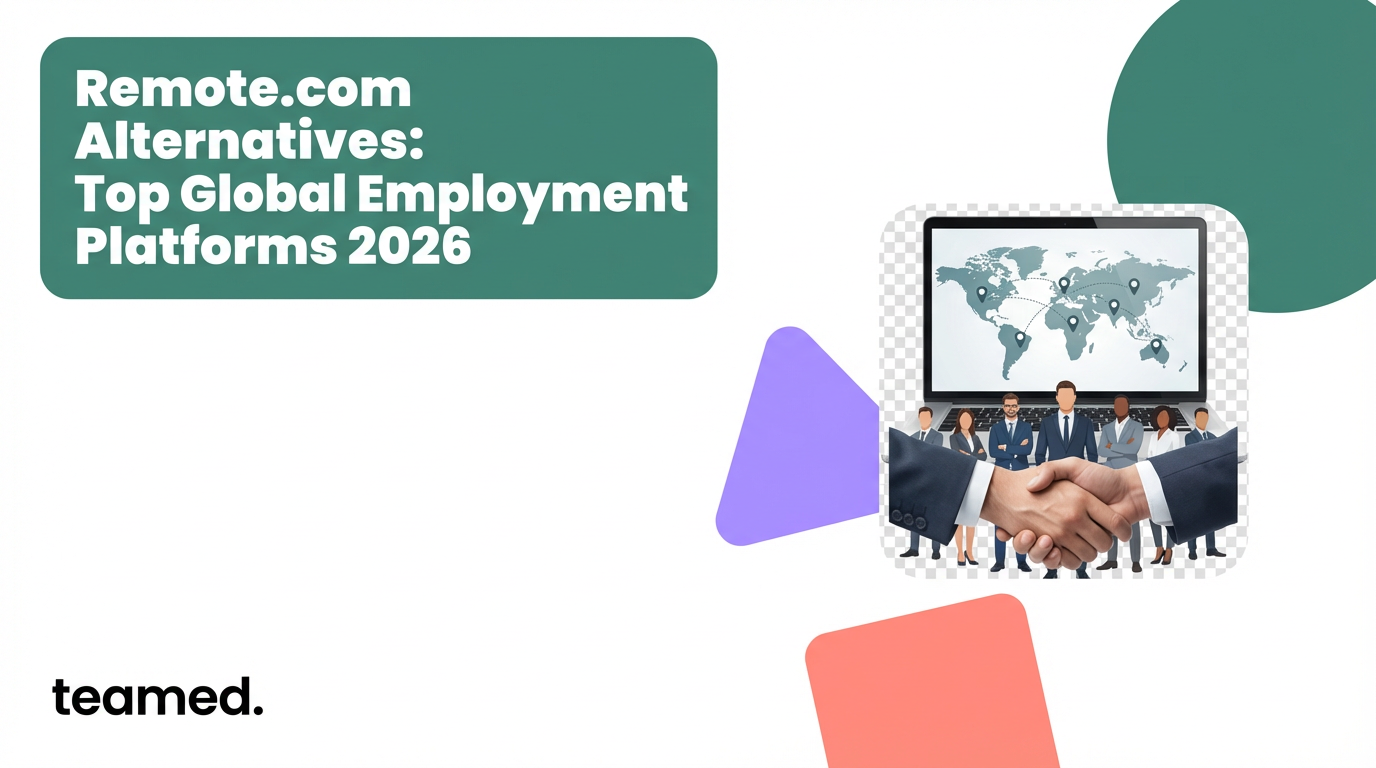- Matthew Sarre, co-founder of Jumpstart, highlights the demands of the new generation and recruiting trends in startups.
- “New generation is looking for purpose or impact”.
- “German startups are eager to hire UK talent when local options fall short”
In the competitive world of startups, finding the right talent can make or break a company. Jumpstart has emerged as a pioneering force, providing early-career professionals with a robust entry into the startup ecosystem. We had the opportunity to talk with Matthew Sarre, co-founder of Jumpstart, to uncover what sets their programme apart from other recruitment services. Our conversation also covered new generation demands, recruiting trends in startups, and various innovative HR topics in the startup world.
Jumpstart's innovative approach involves creating a cohort of candidates and inviting startups to pitch their companies and roles directly to this group. Matthew described this process: "We put those candidates into a cohort and invite startups to pitch their companies and roles to that cohort. 'Startup Spotlights,' where we get startups to come in and pitch their companies and roles to the cohort."
Matthew highlighted that in the startup world, "everyone on the team needs to embody that spirit of taking initiative." He noted that the new generation is increasingly looking for roles that offer "purpose or impact," as well as significant career progression. "Flexibility is another important factor, including the possibility of living in different countries," he added.
The co-founder of Jumpstart noted that it's happening that startups sometimes hire 'five or six sales candidates to drive sales in the new market.' He explained that “in Germany, we've seen strong growth in the startup ecosystem. They are keen to hire UK employees to go over to Germany if they can't find the talent they need locally."
Looking to the future, Matthew identified several trends shaping the recruitment landscape: "First, I think diversity and inclusion are significant themes. Second, there's the evolving dynamic of working from home versus working from the office versus working internationally. Third, we need to consider the impact of artificial intelligence (AI) on hiring. AI will influence both the number and the types of people startups hire."
Jumpstart's forward-thinking programme and emphasis on matching the right talent with the right startups is paving the way for a more dynamic and inclusive startup ecosystem.
Highlights from Matthew
- In startups, everyone on the team needs to embody the spirit of taking initiative.
- The new generation is looking for purpose or impact in their work. Career progression is another significant factor for them. Flexibility is also crucial, including the possibility of living in different countries.
- Jumpstart currently focuses on placing candidates in UK-based startups, but our proven model could expand internationally. For instance, Germany's thriving startup ecosystem sometimes seeks UK employees if they can't find the talent they need locally.
- Future trends to watch:
- Diversity and inclusion will be a major theme.
- The evolving nature of working from home, the office, and internationally.
- The impact of artificial intelligence (AI) on hiring.
Full Interview
What distinguishes Jumpstart's core focus from that of other similar services/companies?
Jumpstart is predominantly a programme for people early on in their career, typically those with zero to four years of experience, to get into the startup ecosystem. That's broadly what we do. The way in which we do it is probably very unique.
Most importantly, we take in thousands of applications, about 5,000 a month. We choose the top candidates across marketing, operations, and sales, and put them through a rigorous selection process. This results in selecting the top 1-2% of the candidates that apply. Then, we put those candidates into a cohort and invite startups to pitch their companies and roles to that cohort.
They then go off and matchmake amongst themselves. Hopefully, they get lots of accepted offers. Anyone who gets an offer is then onboarded into the Jumpstart community where they receive ongoing support provided by Jumpstart, including access to a one-on-one mentor, ongoing training, and a community.
Our focus on startups, junior candidates, and the rigorous selection process is quite different from many other companies. After being selected, candidates are onboarded into a community, which is very different from a typical recruitment company or jobs board.
Our biggest unique selling point is what we call the "Startup Spotlights," where we get startups to come in and pitch their companies and roles to the candidate. It's a bit like "Dragon's Den," "Shark Tank" in the US, or Y Combinator Demo Day. This experience vastly improves candidates' ability to select the right company and role for them.
Now, on how we filter these profiles before having the companies, many early-stage startups look for similar characteristics and attributes in their employees. For example, our most popular role, the Founder Associate, typically has one to two years of experience. They're willing and keen to do the groundwork but also bright, ambitious, and proactive enough to get involved in strategic work.
Other desired attributes include proactivity, problem-solving, and strong communication skills. We at Jumpstart have developed best practices in identifying these attributes. We've placed about 450 people into the startup ecosystem and interviewed over a thousand candidates, allowing us to A/B test and refine the attributes we look for.
We're quite data-driven in the attributes we seek, which differentiates us from a normal recruitment company. We ensure the process is just as focused on the candidates as it is on the companies, creating a balanced and effective hiring process.
In what ways do startups differ from established companies regarding recruitment and hiring processes?
I think there are a few key differences. Firstly, mechanically, how they assess candidates is less structured. Early-stage startups tend to do things more on the fly. You're probably not going to get two or three different independent reviewers looking at each CV, and interview questions are less formalised because they’re often designed on the go.
In terms of attributes, the single biggest thing startups look for is proactivity. Proactivity is crucial because a startup is essentially the result of someone proactively solving a problem. Everyone on the team needs to embody that spirit of taking initiative.
So, the number one thing startups look for, and by extension what we look for in Jumpstart candidates, is proactivity. Of course, you also need a baseline in other areas like strong communication skills and strong problem-solving abilities. In a smaller team, it’s also important to get along well with everyone, probably more so than in a big team where the impact of one person is less noticeable.
Multitasking is also very important. Being able to juggle lots of things is definitely a key skill everyone in a startup needs to have.
What factors are currently motivating the top talent of the new generation?
I think there are a couple of key factors motivating top talent in the new generation. Firstly, this generation is looking for purpose or impact. I deliberately didn't say social impact, though that is important too. Many candidates applying to Jumpstart express that they don't want to be just a cog in a big machine. They want to see a direct line between their input and the resulting output, like increasing sign-ups or sales by making changes to a website. They seek roles where they can have a tangible impact.
Related to this is the desire for social impact and purpose, which is certainly a major trend. Another significant factor is career progression. High-potential candidates are looking for opportunities to advance both in terms of job titles and the experiences and skills they gain. Learning and development are crucial.
Startups can be especially exciting for this generation because joining an early-stage startup can provide a rapid learning curve. If you join a company with fewer than ten people that grows to 500 in a year or two, your role will change many times, allowing you to develop a diverse skill set you wouldn't get in a more stable, conventional corporate career.
Flexibility is another important factor, especially post-COVID. A few years ago, the demand for flexibility and remote work would have been the most significant trend. It remains very present, and it's now widely accepted by both companies and candidates that there's an increased demand for flexibility, including the possibility of living in different countries.
Can you describe the most common situation you've encountered when clients seek international talent?
Yes. So, to explain the thought process behind this question: if you have a successful product that you’ve sold very effectively in the UK and you’re a high-growth startup looking to expand, you might look internationally to grow.
What do you do when you want to break into a new market? Well, you probably want to hire a sales team or a marketing team. Often, what we see is that when startups reach the Series A or Series B stage and have found product-market fit, they look abroad to grow their sales development representative teams—basically their sales teams. They’ll often do this in a big batch, hiring five or six sales candidates to drive sales in the new market.
Regarding how Jumpstart can help, while we currently focus predominantly on the UK, placing candidates into UK-based startups, the model we've developed is tried and tested and could certainly expand internationally in the future.
For example, in Germany, we've seen strong growth in the startup ecosystem. Many German startups speak fluent English and are keen to hire UK employees to go over to Germany if they can't find the talent they need locally.
How do you envision the future trends in startup hiring requirements?
I think diversity and inclusion is a very big theme. Historically, diversity and inclusion have focused on gender and ethnicity. I think we'll see a growing emphasis on socio-economic diversity, including people who haven't had the same privileges as others.Another trend that has been growing over the last few years and will continue to grow is the balance of flexibility—how working from home vs. working from the office vs. working internationally will look like.
A third trend will be the impact of artificial intelligence (AI) on hiring. AI will influence both the number of people startups hire and the types of people they hire. Startups may hire fewer people because individual productivity is increased by AI. Additionally, they will seek individuals who are adept at using AI tools like ChatGPT and other similar technologies.
Related to AI, there will be a rise in the use of no-code tools. People who can effectively build and use no-code tools will be increasingly valuable.
What are your perspectives on the use of AI in recruitment systems?
Yeah, good question. So, to be super clear, there’s AI used by employees on a day-to-day basis to execute their work, and then there’s AI used in recruitment systems. Within recruitment, there are two separate areas: using AI to do the work for you, like selecting candidates, and using AI to improve your processes to select better candidates.
I think we should focus on using AI to improve the processes rather than to hire people directly. AI doesn’t yet have the nuance and decision-making capabilities to make effective hiring decisions. It's more about using AI to assist with tasks like transcribing recorded interviews so you don’t need to take notes, programming highly personalised email invites to increase interview acceptance rates, or doing a first-pass review of CVs and assessment answers.
However, AI should not make the final yes/no decision but rather suggest the top candidates for human review. AI can help identify the most suitable candidates but should still allow for a thorough review of all potential hires. Regarding startups going global with a lot of applications, AI can be particularly useful at the top of the funnel in these processes, helping to manage and filter large volumes of applications more efficiently.
Would you like to add any final thoughts or comments? Is there anything else you'd like to share?
Yeah, the only thing to add is if you are a candidate or a startup and you want to get involved with Jumpstart, feel free to check us out. We've just launched a new software engineering stream for full-stack developers with three to ten years of experience who want to build in early-stage startups. This can be a great opportunity to kickstart your career, especially when they're looking for experienced candidates.
After Global Recruiting What is Next?
Jumpstart's innovative approach and emphasis on early-career professionals are reshaping the startup recruitment landscape. By creating a cohort of candidates and inviting startups to pitch directly to them, Jumpstart ensures a tailored and dynamic hiring process. As co-founder Matthew Sarre notes, the demand for purpose-driven roles, flexibility, and international opportunities is growing. Trends like diversity, remote work, and AI are also influencing recruitment.
Teamed can amplify these benefits by simplifying global employment logistics. With Teamed, startups can effortlessly hire, pay, and support international talent, ensuring they can access the best candidates worldwide. Our dedicated local specialists provide personalised, human support to navigate the complexities of global hiring. This synergy between Jumpstart and Teamed offers startups a comprehensive solution for building world-class teams, no matter where the talent is located.
Ready to take your startup to the next level? Discover how Teamed can support your global hiring strategy.








